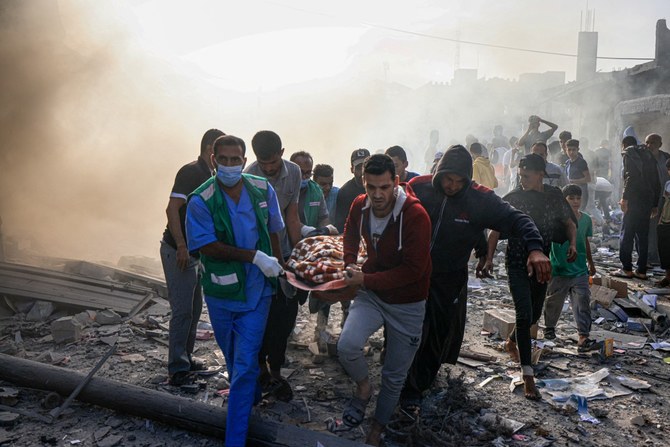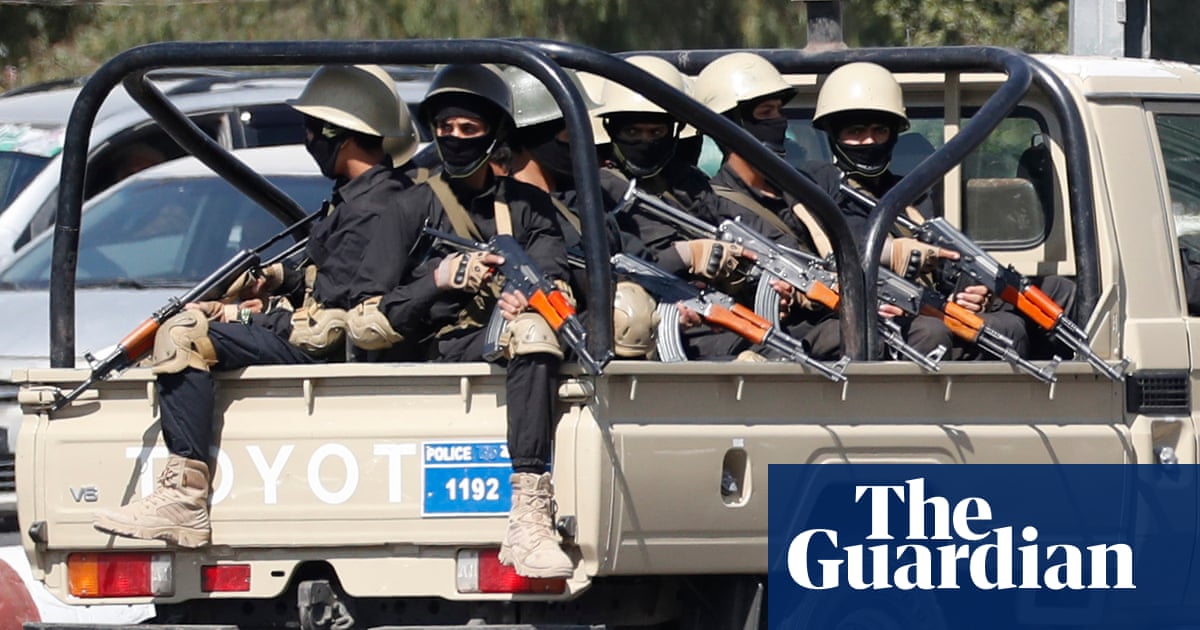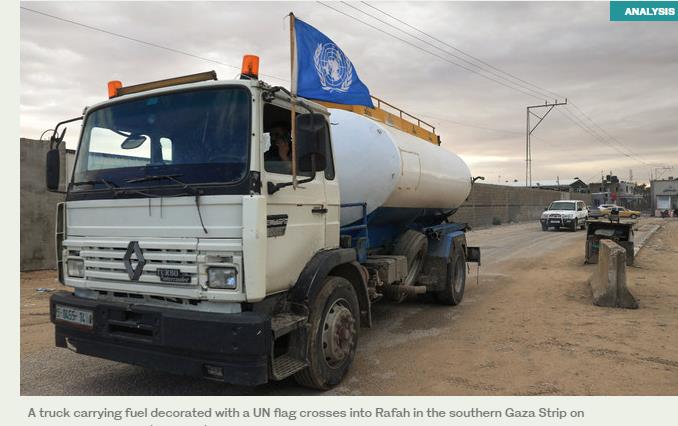
Discussing the start and the developments of the deadly war taking place in Gaza is inescapable, but so are the questions of how this war will end, who will raise the white flag first and at what price.
The ongoing Israeli military assault, which has spared no civilian lives or facilities, is more than a mere response to the attack by Hamas on Oct. 7. Judging by the sheer size of the Israeli response, a change in the political reality is about to unfold before us.
In the aftermath of the attack, Israeli Prime Minister Benjamin Netanyahu said that the region would never be the same again. This claim was echoed loudly in Western capitals, which were quick to announce their support and to back efforts to expel Hamas from Gaza.
Today, we stand before a horrific humanitarian crisis, a bloody military battle and the prospects of a different political project. Israel may achieve its ambition and wipe out the armed group as we know it, yet the Palestinian cause and rights are here to stay, with or without Hamas in the picture. Israel will still be in danger, as evidenced by the scale of Hamas’ latest attack, despite years of blockade and surveillance by Israel.
Judging by the sheer size of the Israeli response, a change in the political reality is about to unfold before us
Abdulrahman Al-Rashed
Three important observations must be made here.
First, Netanyahu and Hamas may be enemies, but they are allies in the effort to thwart the peace project in the region.
Second, neither will emerge victorious in this war: Hamas may lose Gaza, while Netanyahu not only risks losing the leadership of the Israeli government following the Oct. 7 failure, but he also may go to jail on the charges of corruption leveled against him before the war.
Finally, deadly as it may be, this war will breathe new life into the peace project.
The expulsion of Yasser Arafat and his fighters from Lebanon was the end of Fatah as a military organization, but Arafat knew how to play his political cards. He repositioned and managed to return to Palestine as leader of the Palestinian Authority, no less, following the Oslo Accords.
Today, history may repeat itself, even in light of the worst humanitarian crisis in the Palestinian-Israeli conflict for 50 years.
In a few weeks, the war will end and the fronts will fall silent. Then, it will be time for politics.
While bombs rained down from the skies above Gaza, Hamas’ political leader Ismail Haniyeh dropped a metaphorical bombshell of his own when he announced the group’s readiness to accept peace in the form of a two-state solution. Haniyeh is well aware of what the war could be hiding next. Hamas is not strong enough to repel the US-backed Israel, especially without any support from its allies. Haniyeh wants Hamas to have a political front that could reap the benefits of the Oct. 7 attack.
But he and former leader Khaled Mashal must first overcome a big hurdle: the leaders of Hamas in Gaza do not recognize any role for their peers abroad. It has even been leaked that the supporters of Haniyeh and Mashal were removed from leadership roles as far back as 2017, when the military leadership headed by Yahya Sinwar took control of the movement.
Today, Hamas is cornered and blockaded, which could mean a guaranteed seat at any future negotiating table for its leadership abroad. However, the movement tried, through last month’s attack, to nip any such negotiations in the bud.
But a challenge arises here. The US has listed Hamas on its terrorist blacklist, so any American undertaking of a peace project would force Washington to backtrack.
Even if Hamas agreed to disarm, no Arab state would be willing to take the movement under its wing
Abdulrahman Al-Rashed
Arafat was once banned from entering the US or meeting with American officials, with alternatives like Haidar Abdel-Shafi and Hanan Ashrawi appearing in his place during the 1991 Madrid Conference. Eventually, the Americans had to sit down with Arafat because no peace or negotiations were possible without him. Granted, the extremist movement of Hamas is not the same as Fatah, but it is still impossible to ignore and its concession would strengthen the position of the PA in potential negotiations.
Until then, the road is fraught with traps. Israel has vowed to annihilate the 35,000-strong movement, but such a goal is militarily impossible without both sides incurring horrific civilian and other losses.
Will Hamas agree to step away from the scene in order to curb the loss of lives among civilians and its own fighters?
Moreover, even if Hamas agreed to disarm, no Arab state would be willing to take the movement under its wing and bear the potential dangers that would accompany such a move.
Caught between a rock and a hard place, the two sides of the conflict may finally agree to a compromise, which no one is better positioned to engage in than the PA. Thus, the lights will again shine at the end of Gaza’s dark tunnels.
As for the prospects of peace and disarmament, that is a subject for another time.
Abdulrahman Al-Rashed is a veteran columnist. He is the former general manager of Al Arabiya news channel, and former editor-in-chief of Asharq Al-Awsat, where this article was originally published. X: @aalrashed












